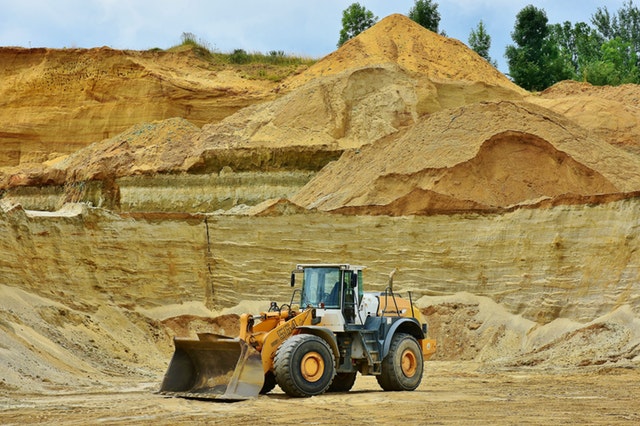Zambia finds itself at the epicentre of what may be an economic and geopolitical rivalry between the West and China, boasting the potential to reshape the geopolitical landscape in the decades to come.
Earlier this year, KoBold Metals, a California-based exploration company backed by billionaires including Bill Gates and Jeff Bezos, said it had discovered a vast copper deposit in Zambia. The Mingomba copper project is touted as a potential global copper giant! According to Bloomberg, “It’s going to be one of the highest grade, large underground mines”, and the largest discovery in a century, according to some extractive industry pundits.
This discovery carries profound implications for Zambia, Africa’s second-largest copper producer after the Democratic Republic of the Congo (DRC). However, beyond the economic windfall and geopolitical positioning, this development intersects with the global energy transition movement, specifically the shift towards cleaner energy sources where copper plays a pivotal role.
Much ado about the energy transition
The world is at a juncture where the urgency of addressing climate change is paramount. Africa, despite having the lowest carbon emissions footprint, grapples with the impacts of climate change and faces a complex path ahead. Commitments to the Paris Agreement necessitate a substantial mobilisation of political and economic capital to replace carbon-intensive energy infrastructure with low-carbon alternatives.
The extractive sector, inherently intertwined with the political economy and geopolitics, is poised for redefinition. Geopolitical dynamics related to oil reserves may witness a decline in significance, but the strategic importance of critical minerals, particularly copper and cobalt, will be accentuated in the context of the energy transition.
As the world pivots towards renewable energy sources, copper emerges as a linchpin in the production of clean technologies. It is a vital component in renewable energy systems, electric vehicles, and energy-efficient appliances – electric vehicles are expected to command half the global market by 2030.
An unfolding narrative
As of early February, a spokesperson for KoBold Metals expressed confidence in the magnitude of their discovery, boldly stating that the Mingomba copper project in Zambia is poised to become one of the world’s largest high-grade copper mines. This announcement has stirred anticipation and speculation within the global mining and geopolitical spheres.
Zambia stands at the threshold of a transformative era. The newfound copper reserves could elevate Zambia’s economic prowess, creating a ripple effect in the Southern Africa region and on the global copper market.
The involvement of influential figures like Bill Gates and Jeff Bezos adds another layer to this unfolding narrative. The backing of such prominent individuals not only underscores the commercial viability of the Mingomba project but also raises questions about the broader motivations and strategic interests at play.
From a geopolitical standpoint, Zambia’s ascent as a major copper player could recalibrate regional power dynamics. As the nation gains economic significance, it may find itself courted by global powers seeking to secure a stake in its newfound mineral wealth. This could lead to a diplomatic chess game, with various nations vying for influence and access to Zambia’s lucrative copper resources.
A global race for critical minerals
The significance of this discovery is heightened by the global pursuit of minerals essential for clean energy technologies. As the United States America (USA) and China intensify their competition for resources like cobalt and lithium, Zambia’s newfound copper wealth places it in a unique position. The competition extends beyond a bilateral race, with collaborative efforts between the European Union (EU) and the USA to fortify supply routes through initiatives like the Lobito transport corridor.
This geopolitical tug-of-war is not merely a clash of economic interests; it is a reflection of the broader contest for influence and control in a world increasingly reliant on green technologies.
China’s historical investments in African infrastructure, particularly the Copperbelt region, have given it a head start. The Belt and Road Initiative, dating back to the 1970s, positioned China as a major player in Africa’s resource extraction landscape. However, the U.S. is now stepping up its efforts, exemplified by President Joe Biden’s plan to invest $600 billion in infrastructure projects over five years, with the Lobito corridor serving as a flagship initiative.
…a balancing act
The geopolitical chessboard presents both opportunities and challenges for Zambia. On the one hand, the influx of foreign investment and the potential economic boost from copper exports promise prosperity. On the other hand, ensuring that this newfound wealth translates into sustainable development and benefits for the local population is a pressing concern. Striking a balance between welcoming foreign investments and safeguarding national interests require deft diplomacy. Moreover, Zambia’s ability to navigate the complex geopolitical dynamics, with the USA, China, and the EU vying for influence, will shape its future. Managing these relationships prudently will be paramount to ensuring long-term stability and prosperity.
This nuanced approach involves not only maximising economic gains from the copper discovery but also positioning Zambia (and the region at large) as a responsible custodian of a resource critical to the global energy transition. As the geopolitical chessboard continues to evolve, Zambia’s decisions and strategies will play a pivotal role in defining its place in the intricate web of global power dynamics.
About the author:
Luckson is a young Zambian budding political and geopolitics commentator with a passion for global affairs currently based in The Netherlands. A communicator in media, politics, financial affairs and public policy, he is passionate about providing insightful and nuanced commentary on international relations, and how they relate to Africa and Zambia. Beyond politics, Luckson is an enthusiast of all things ‘nice’ and dank memes.





